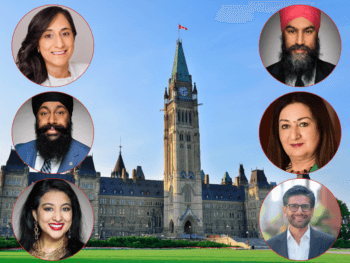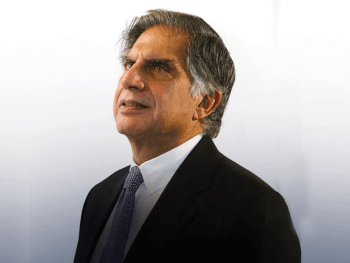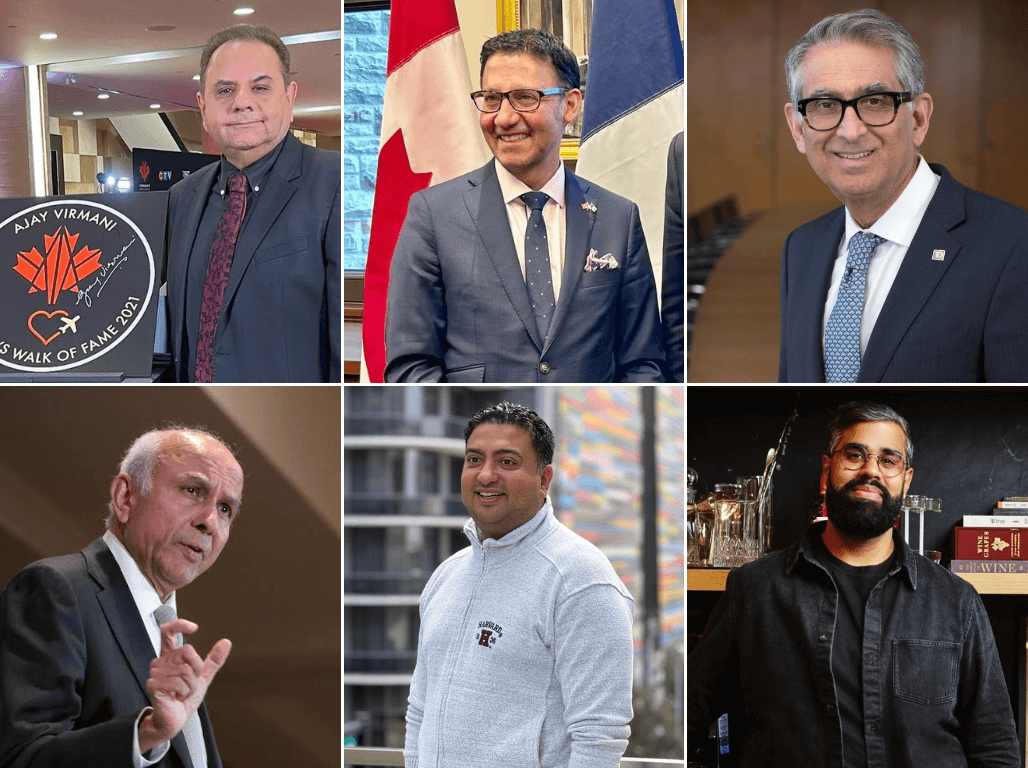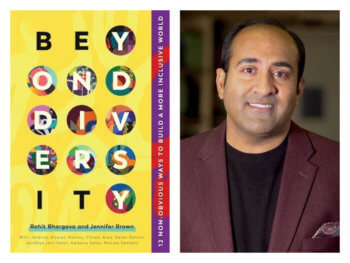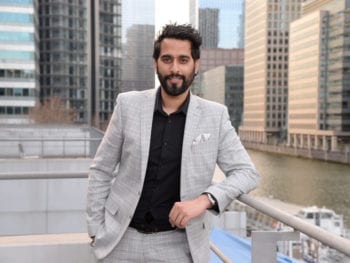
Building Generational Wealth in North America: A Guide for South Asians to Guarantee Success!
Business Dec 16, 2024
Generational wealth—transferring assets and financial resources across generations—provides a solid foundation for families to thrive and secure their futures. For South Asians in North America, this endeavor often transcends financial goals, intertwining with cultural and familial values. Many families, shaped by immigrant journeys, start with modest means, but with the right strategies, they can create lasting wealth that supports descendants for years to come.
1. Embrace Financial Education
Financial literacy is the cornerstone of wealth-building. While South Asian communities value education, this focus often excludes financial knowledge. Understanding personal finance, investing, tax strategies, and estate planning is critical for creating and sustaining wealth.
With abundant resources—ranging from online courses and books to podcasts and financial advisors—families can gain the knowledge needed to make informed decisions. Financial literacy paves the way for more innovative investments, savings, and business ventures, forming the backbone of generational wealth.
2. Save and Invest Early
Saving is a deep-rooted tradition in South Asian culture, often tied to securing future generations. Elevating this practice by investing strategically amplifies its impact.
Whether through the stock market, mutual funds, retirement accounts, or real estate, early and consistent investing leverages the power of compound interest. Diversifying investments across asset classes further balances risk and ensures steady growth, enabling families to build wealth over time.
3. Leverage Real Estate

Real estate has long been a cornerstone of wealth-building, particularly within the South Asian community. While owning a home often signifies financial stability, expanding into a diverse real estate portfolio can amplify wealth generation.
Consider investments in rental properties, commercial real estate, or vacation homes. Real estate provides multiple income streams and tends to appreciate over time. It can become a legacy for future generations with thoughtful planning and diversification.
4. Harness the Power of Entrepreneurship
Entrepreneurship has been a hallmark of South Asian communities. Family-run businesses create wealth for the present and lay the groundwork for future generations.
Sustainable and scalable business models and strategic succession planning ensure longevity. Industries such as retail, technology, hospitality, and professional services are thriving examples. Mentoring the younger generation to manage and grow the family business safeguards wealth creation for years.
5. Prioritize Estate Planning
Wealth creation is incomplete without preparing for its transfer. Estate planning ensures assets are passed on efficiently, minimizing taxes and avoiding potential disputes.
Working with estate planning professionals to establish wills, trusts, and other tools protects assets and ensures a smooth generational transfer. Educating heirs about their responsibilities further strengthens the family’s financial legacy.
6. Invest in Education and Skills
Education has always been a priority for South Asian families. Beyond traditional academics, fostering skills in finance, technology, and leadership can open new doors for the younger generation.
Introducing investing, entrepreneurship, and wealth management concepts early equips children with the tools to advance the family’s financial legacy.
7. Build a Strong Network
Networking is an essential component of wealth-building. South Asians in North America, often navigating unique challenges as immigrants, can benefit immensely from strong professional and community connections.
Engaging with business owners, financial advisors, and mentors, along with attending seminars and community events, provides opportunities for collaboration and growth. A robust network offers the support and insights needed for long-term financial security.
8. Create a Legacy of Giving
Generational wealth is not solely about accumulation; it’s about impact. Philanthropy, a value deeply embedded in South Asian culture, reinforces family values while benefiting the community.
Contributing to causes aligned with the family’s ethos fosters goodwill and strengthens relationships. Additionally, strategic giving can provide tax benefits, ensuring wealth serves personal and societal goals.
We had the opportunity to chat with Pam Setia, PFP®, Holistic Wealth Consultant, Coach and Public Speaker. Here are her insights on real estate and wealth-building

Real Estate is one of the most powerful and integral tools when building wealth. Buying a home is one of the biggest financial decisions that you make or will make in your lifetime. Historically, real estate was purchased due to family and lifestyle goals. However, today it is a big part of wealth and equity building and for some even part of their retirement solutions! Have you considered why some purchase real estate while others do not consider it? The general notion is that for some its attainable while for others it just simply isn’t!
Based on a StatsCan report, adult children were twice as likely to purchase a home themselves if their parents owned a property. Cultural expectations also play an integral part in the homebuying process. In fact, social, economic, and cultural norms play a vital role in the real estate ownership.
Real estate is often viewed as a cornerstone of building wealth because of its ability to grow over time due to market appreciation while you pay into its equity and fund multiple life milestones. When purchasing your first home; whether it is for yourself to live in or for you to use as an investment, it is important to ask yourself if you are buying real estate or do you wish to become a real estate investor. This question alone allows you to identify and establish how and what you should be purchasing first.
At What The Financial, when working with our first time homebuyers, we spend time uncovering exactly what our clients are hoping to do not only with their first purchase, but also uncover their subsequent real estate goals. Much like a sound financial plan a real estate portfolio requires us to establish parameters before purchasing a property.
—- KEY CONSIDERATIONS —-
Budget: Check for attainability:
How much of a home do you qualify for based on your monthly NET income? Normally, when considering our budget we think in terms of mortgage approval; however, this is a flawed perspective.
The fundamental flaw is that mortgage approval is based on total debt service ratio (TDSR) not exceeding 44% and your gross debt service ratio not exceeding 39% when considering your GROSS income. We do not get our gross income in our bank account so it makes sense to point out the importance of reviewing your budget. This helps you budget accurately for your new home.
Here is a link to our Budgeting Course:
https://what-the-financial.passion.io/app/products/182275
Cost Analysis: What costs are associated with purchasing a home. We readily consider our purchase price; however, it is important to also create a list of other costs, such as land transfer tax, developmental fees, lawyer fees, and more often than not nowadays, mortgage broker fees. These additional fees can really throw off your budget for your home. There can be some surprise costs as well so ensure to add a buffer! It is generally advisable to have 1.5% to 2% of purchasing price for closing cost. When purchasing in Toronto, this rule may not work due to the double land transfer tax.
Professional Advice: Seek advice of professionals. While these costs can seem like a lot, the cost of regret by not getting timely advice is quite significant. Some professionals that I recommend you meet with early enough when considering your first home purchase are:
Accountant: Understand what type of income you need to claim so you can qualify for the required mortgage. This is important for those that are self-employed. The key here is to have a healthy amount of income so you can get an approval for the type of home you wish to buy. Think of it this way, would you rather pay your taxable rate on your income or get a better rate on your large mortgage? Do the math because sometimes the taxable rate can be greater than what you will pay on your mortgage for the specified term.
Lawyers: Speaking to a lawyer early enough and understanding the type of cost associated with closing your first home is imperative. Lawyers can help you navigate purchases, and there are a lot of things that may work in the opposite direction during closing time. You want to be able to have the right legal representative to provide you the right timely legal advice.
Mortgage Agents: It is imperative to understand what is required for an approval. I would not skip the preapproval process. Start early, so not only do you know what type of income you need but also the type of documents that you will require once you purchase your home.
Real Estate Agents: Hiring the right Realtor allows you to be confident that the home you’re purchasing meets your needs. Take the time to express exactly what you’re looking for. What is also key is taking the time to do the research that you need to find the right realtor, and take their advice seriously. If you found the “right” Realtor chances are you will find the “right” first home.
Wealth Consultants: Working with the Wealth consultant early enough allows you to look at your holistic financial plan. They can help you navigate the homebuying process before you’re buying your home. Many first time homebuyers have highlighted how they wish they would’ve had timely advice on multitude of items before even purchasing their home or thinking about it. Working with a wealth consultant, such as myself allows you to navigate the homebuying journey with ease.
Please note there are other professionals, such as Appraisal companies and home inspectors that play a vital role when purchasing your first home. However, the advice above is the preliminary work that I feel you need to do in order to prepare yourself when purchasing your first home.
Is Real Estate The Right Option For You:

Counterintuitive to the advice above, before you search for your first home ask yourself is homeownership for you? The reason I emphasize this aspect is because it is important to understand what your lifestyle is, and if purchasing a home, whether it’s responsibilities will fit into your future goals or not. For some traveling the world makes sense and in that case, home ownership may not be a consideration. These key considerations can help us better prepare ourselves for the homebuying process or help us seek alternatives to grow our wealth!
—- WEALTH BUILDING ALTERNATIVES TO REAL ESTATE —-
Beyond Real Estate, there are other alternatives that I recommend you consider. While real estate is a big consideration for your portfolio, I do recommend considering diversification.
When working with a holistic wealth consultant you’ll hear about diversification often. The rationale for diversification is that if real estate market is not favourable, then what is your contingency plan? If Real Estate is something that you need to exit or carry a cost for, how will you manage that additional cost?
This is why when working with our clients we also offer alternative investment solutions such as an investment portfolio strategy or using insurance as an asset.
Investment Portfolio:
An investment portfolio can allow a client to take their money and hand the responsibility of growth to a financial planner or portfolio manager. The goal of this strategy is that the portfolio manager or advisor manages your funds while you reap the rewards of a passive investment strategy.
An investment allows you to make tactical shifts as the market moves without the cost of traditional Real Estate. You will have management expense ratios built-in, however in most portfolios, your growth is net of these fees.
A portfolio manager can also help you structure your portfolio effectively when it comes to taxation, and this may be something that resonates mostly with you.
It is key to know what works for you as an individual, and when setting up your portfolio that is the exact conversation that you will have with the portfolio advisor. It is important to know what type of risk you are comfortable with and what type of responsibility you’re ok taking on when it comes to your investments or your money.
Insurance:
Another investment vehicle that clients find interesting and profitable is insurance as an asset. Insurance is traditionally seen as a mechanism to protect your family in case you pass away.
Insurance as an asset; however, allows you to protect your family and allows the cash values to grow tax free. It is a wonderful alternative to grow your wealth; however, without the carrying cost of home ownership. When purchasing a home, you need to be mindful of expenses and the cost of maintaining a home. However, with insurance as an asset, you lock in a minimum threshold of wealth and do not need to worry about any annual costs other than your premiums.
Insurance as an asset also grows tax sheltered and when withdrawn has no tax

implications. It is imperative to work with a licensed Insurance Consultants to ensure this strategy makes sense for you and how it impacts your tax or costs associated with this approach. The key take-away is that there are other alternatives when considering growing your wealth.
In Canada, I firmly believe that to grow your wealth you need to consider all three avenues of wealth building. If you’re unsure where to start contact us today to help you build your wealth and reach true financial freedom!
— THE PATH AHEAD —
Building generational wealth is a financial and cultural journey for South Asians in North America. By focusing on economic education, strategic investments, and long-term planning, families can secure a prosperous future for future generations.
With patience, persistence, and a holistic approach, South Asian families can leave a legacy of success, values, and prosperity, ensuring their descendants thrive for years.
Feature Image: Pexels.comGenerational Wealth: Guide Building Generational Wealth: Guide
Author
Internationally celebrated, award-winning media personality and author of several business and lifestyle articles, Tushar Unadkat, is the CEO, Creative Director of MUKTA Advertising, Founder, and Executive Director of Nouveau iDEA, Canada. He holds a Master of Design from the University of Dundee, S...


















































